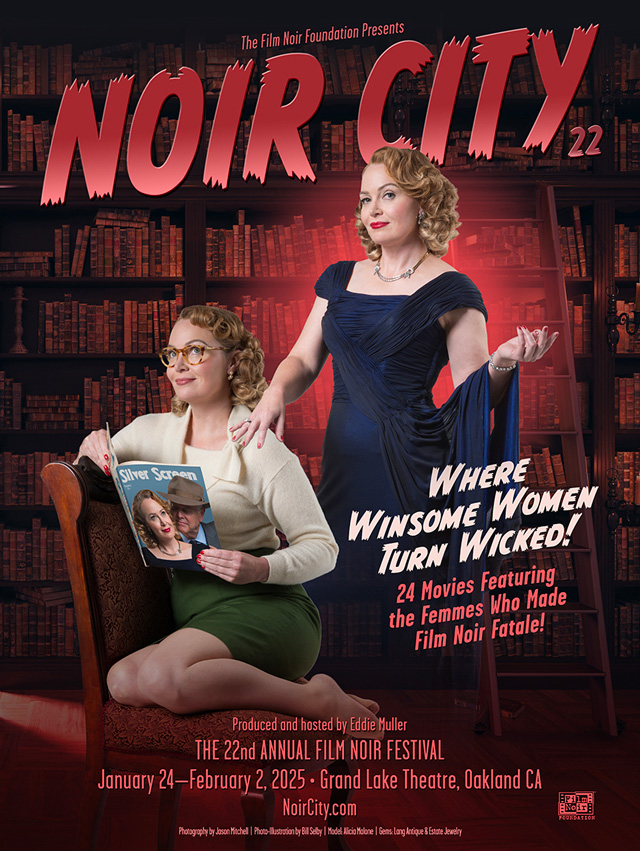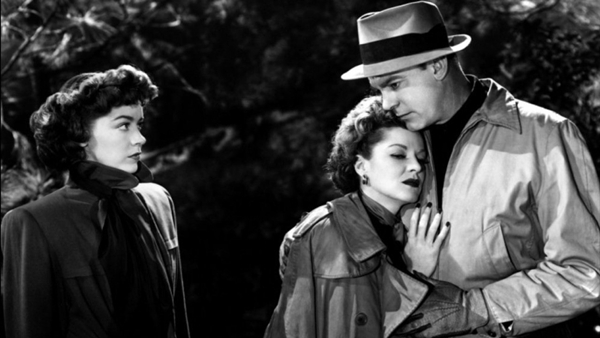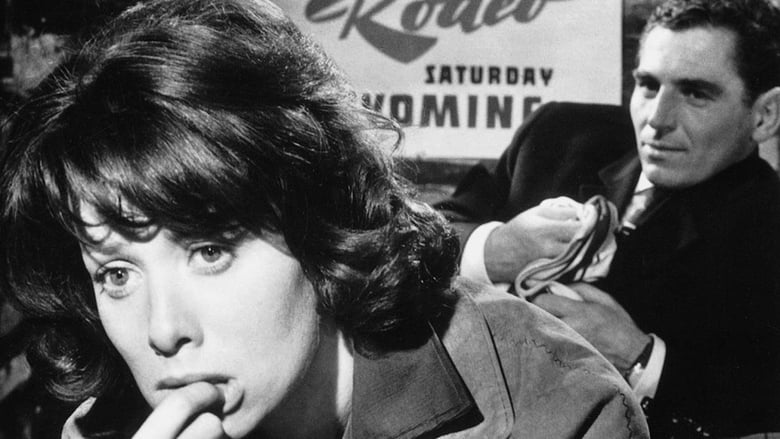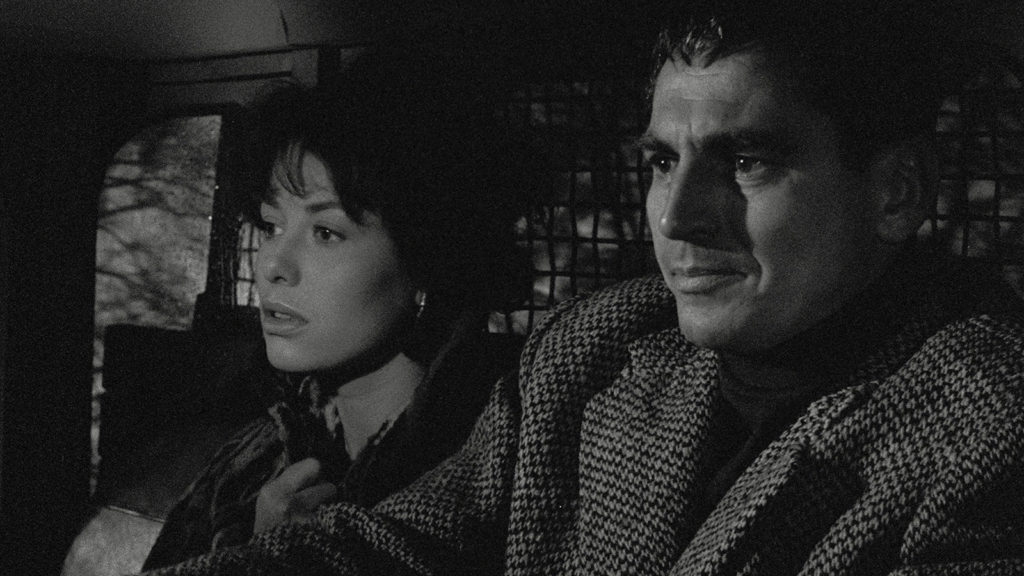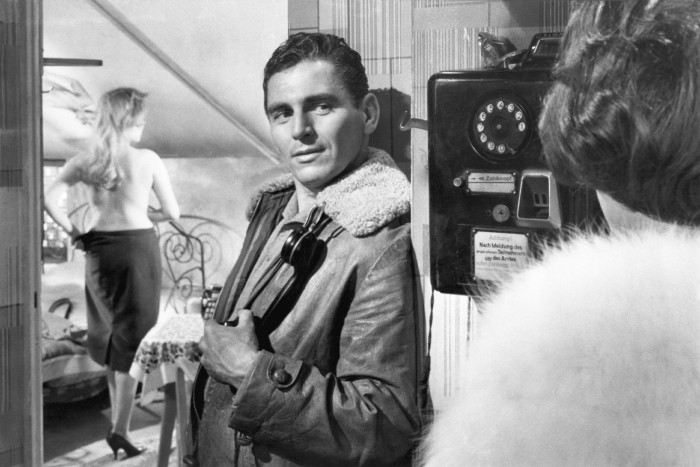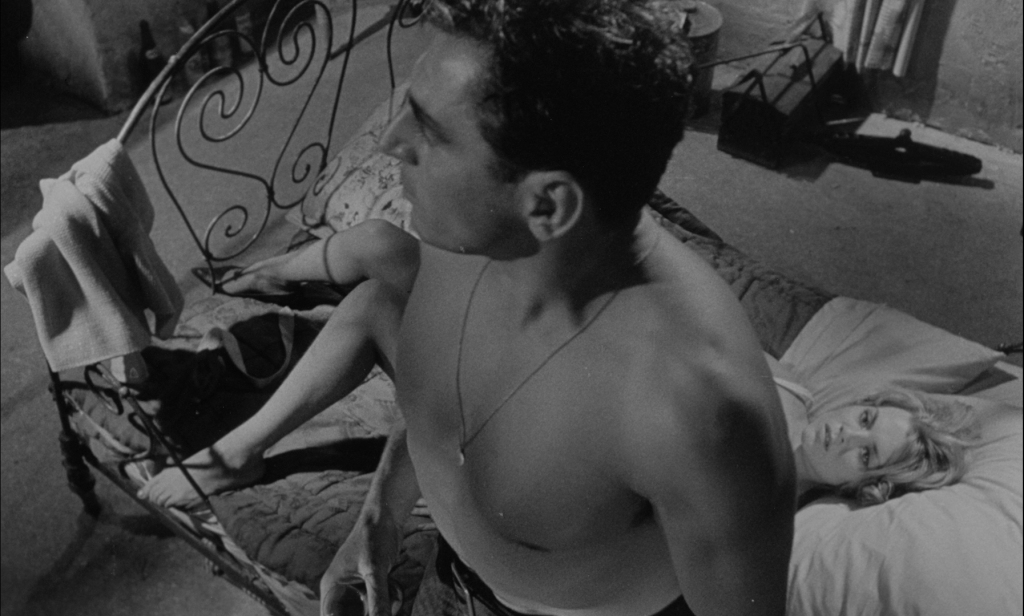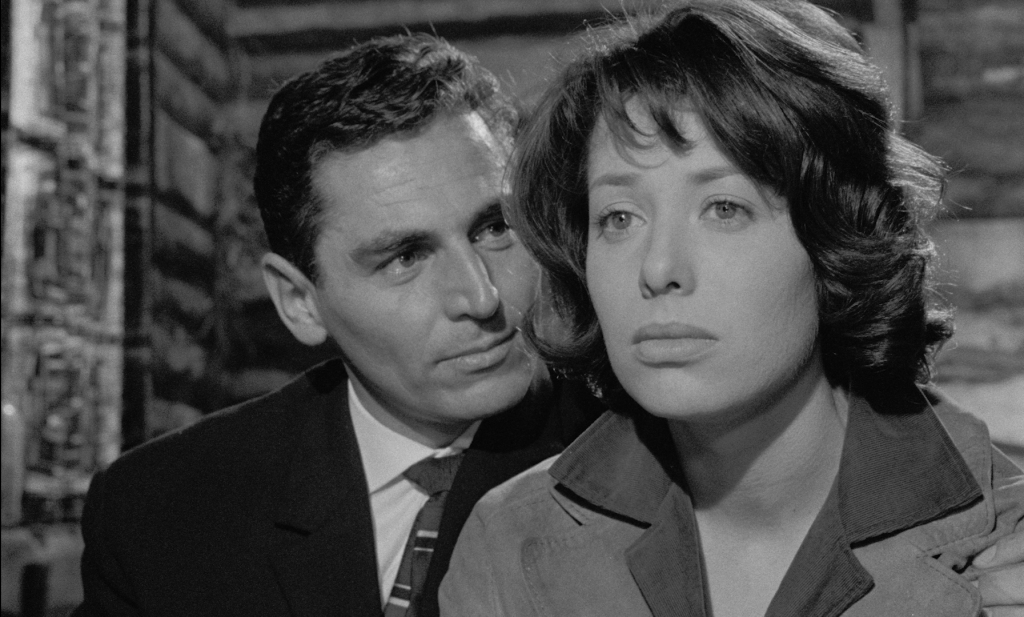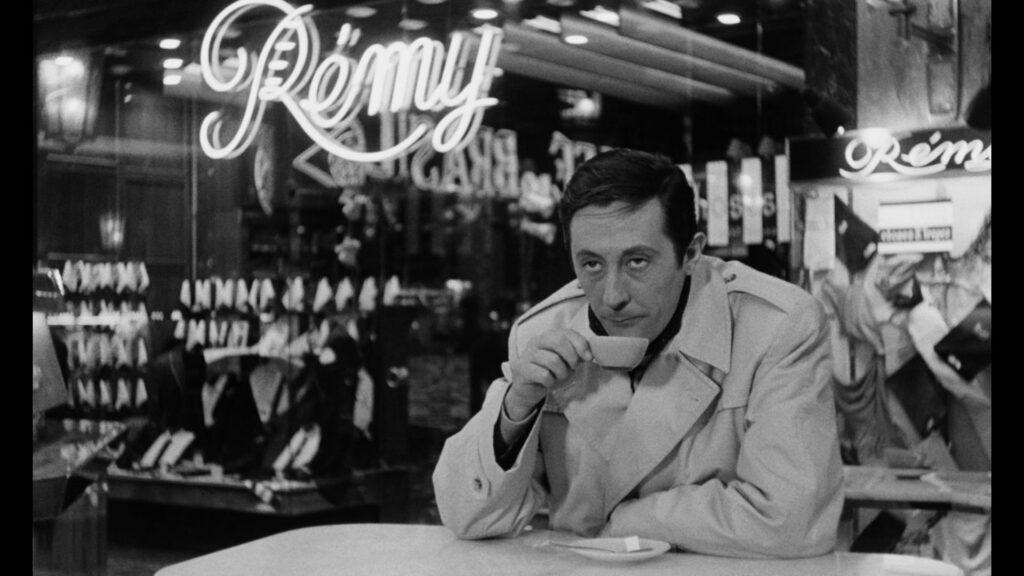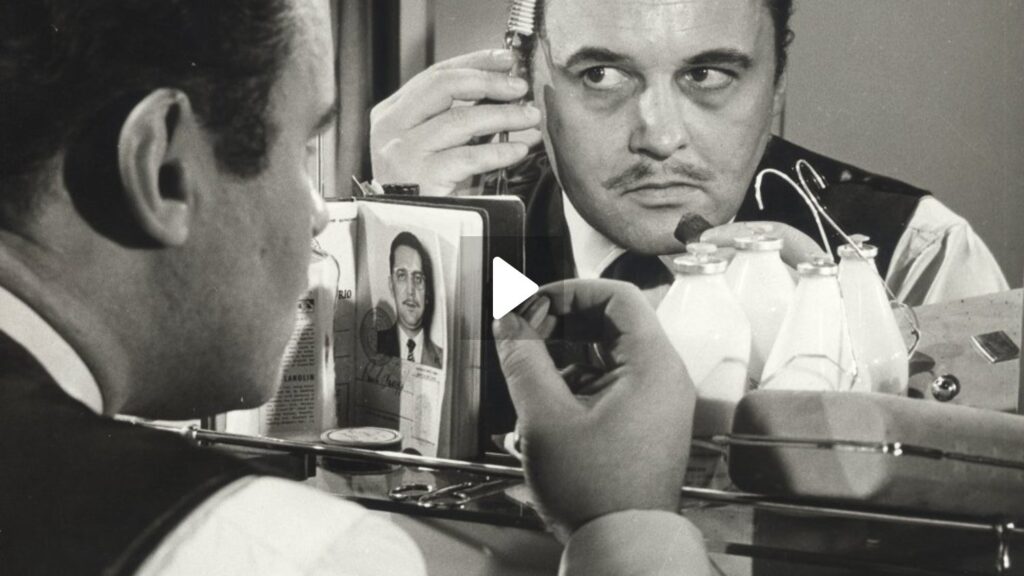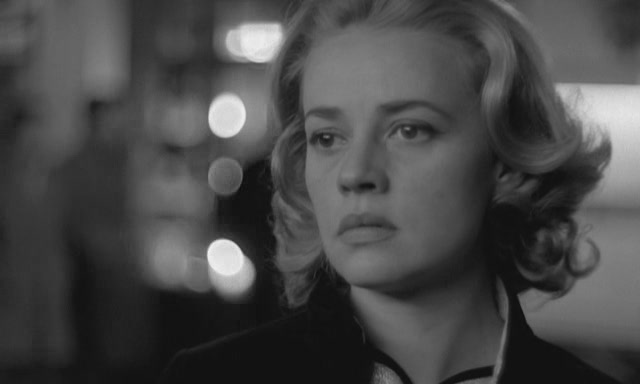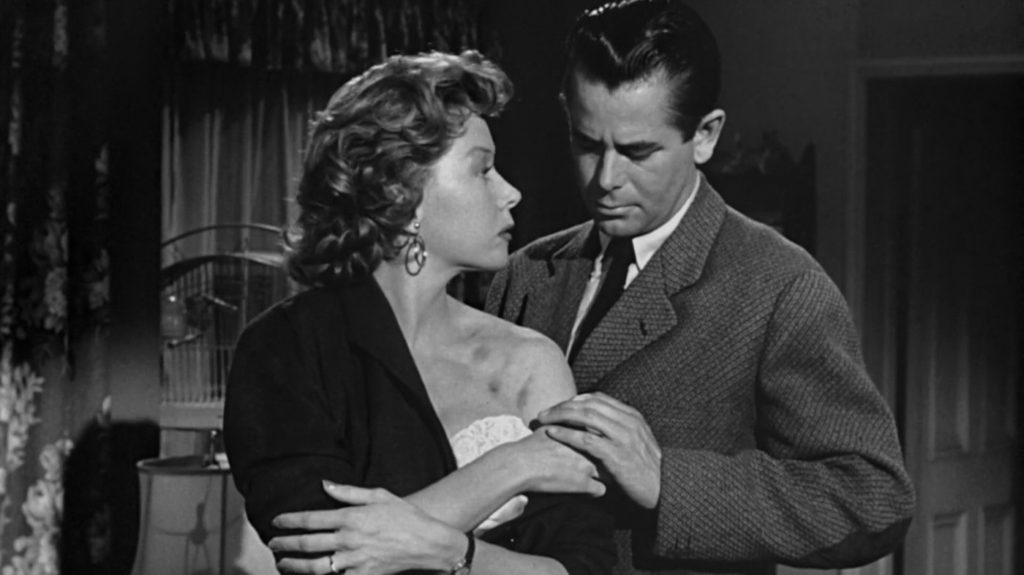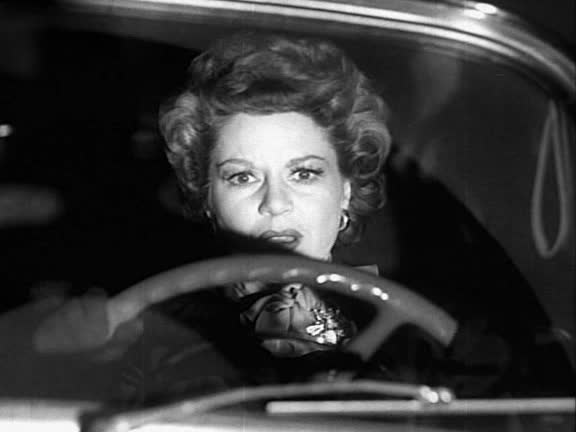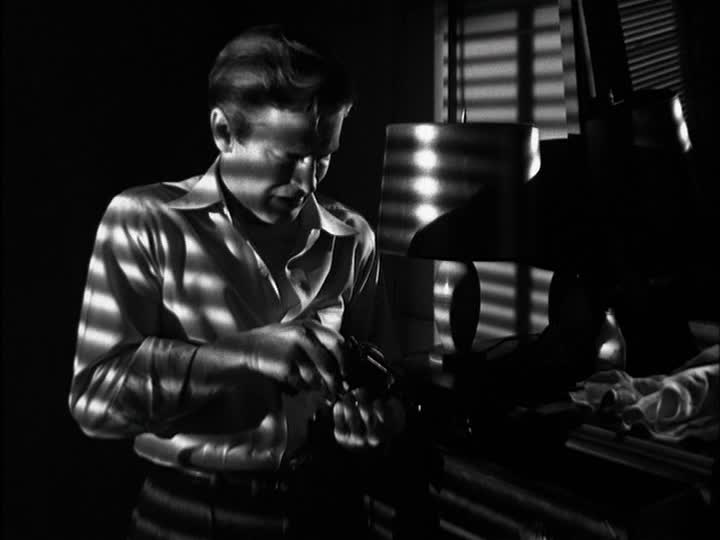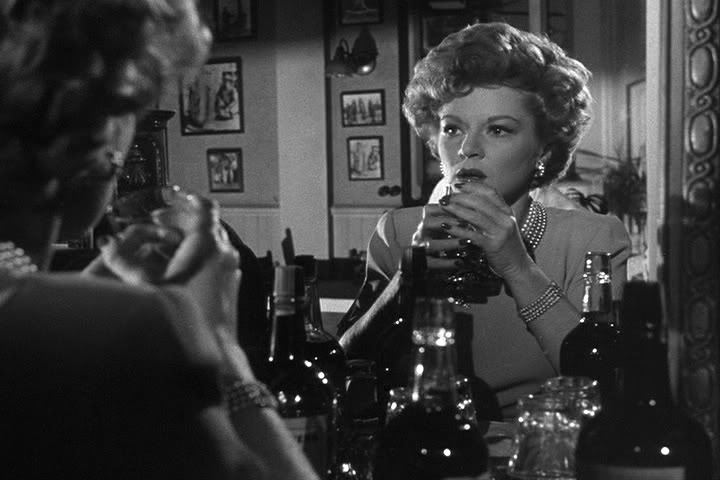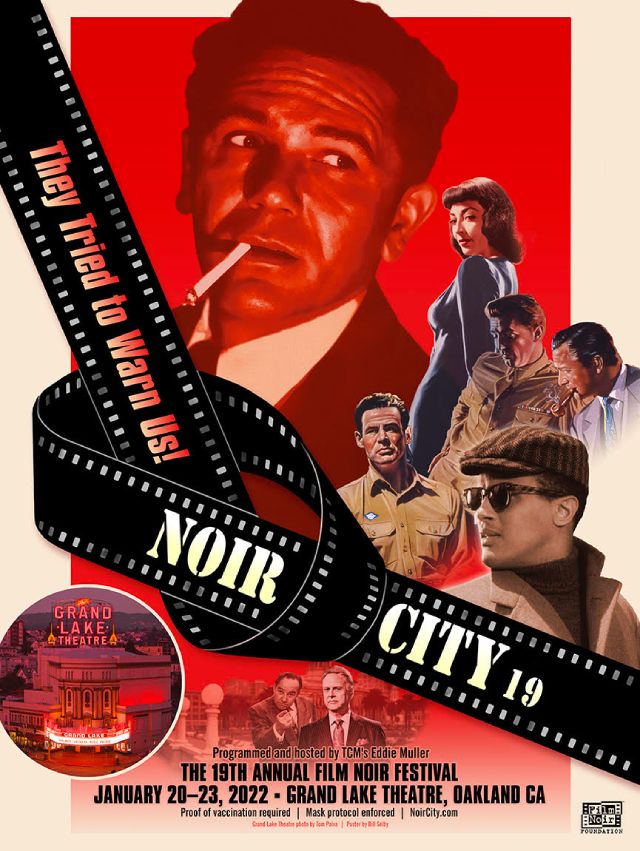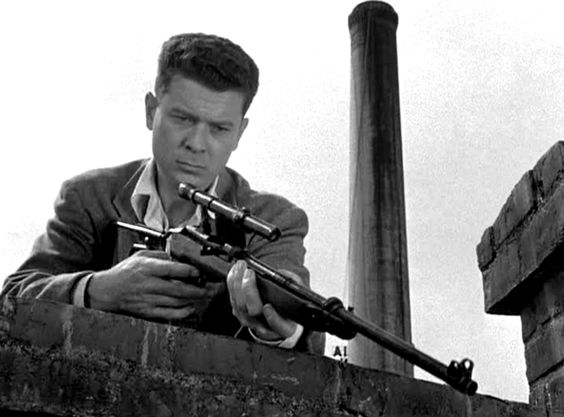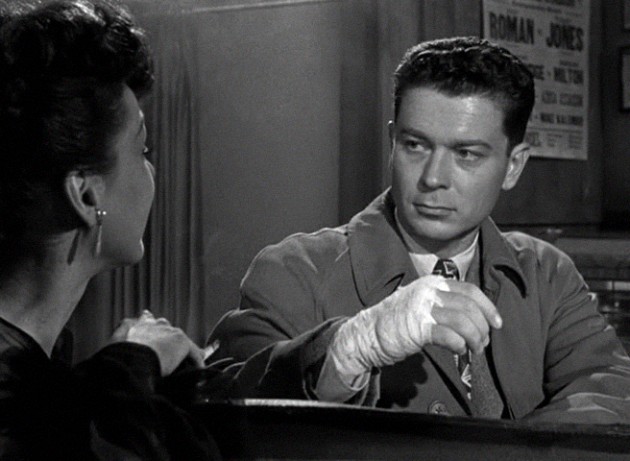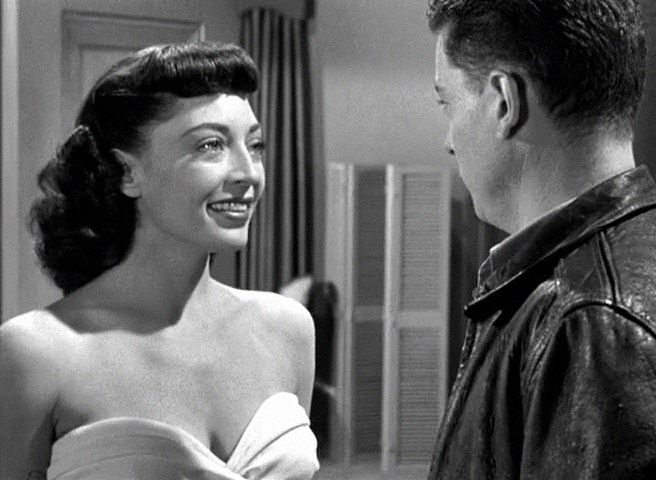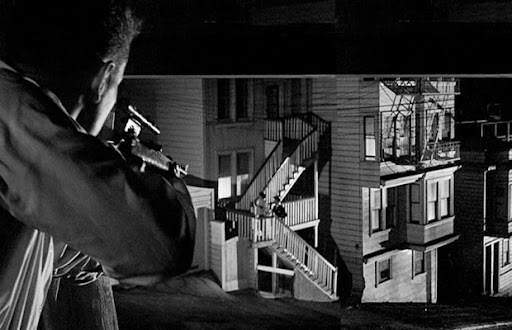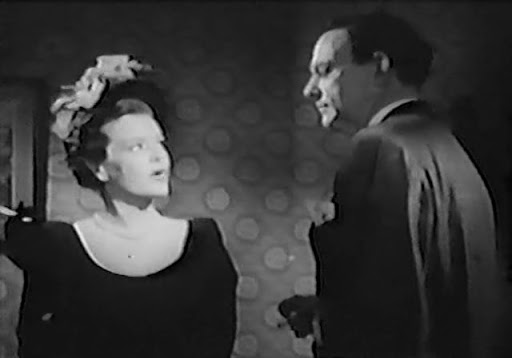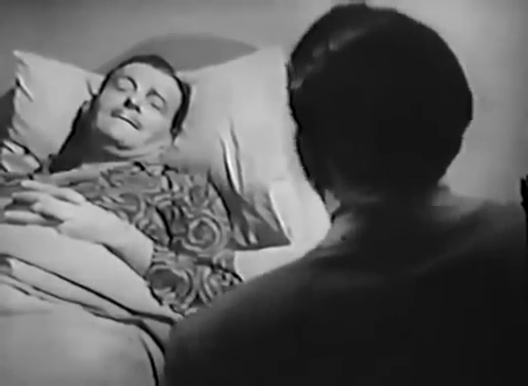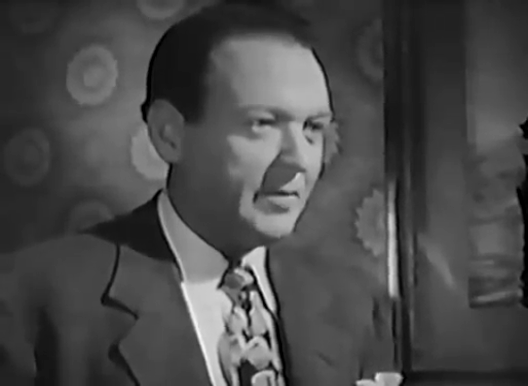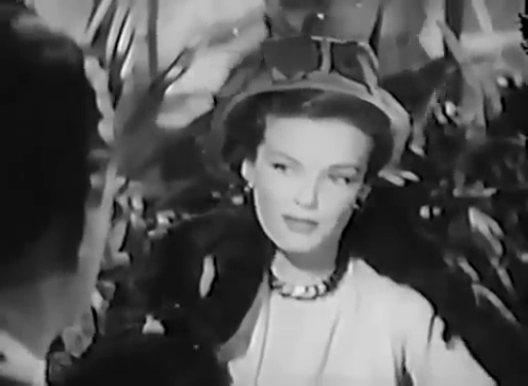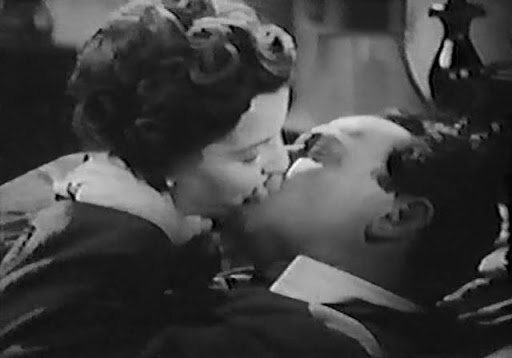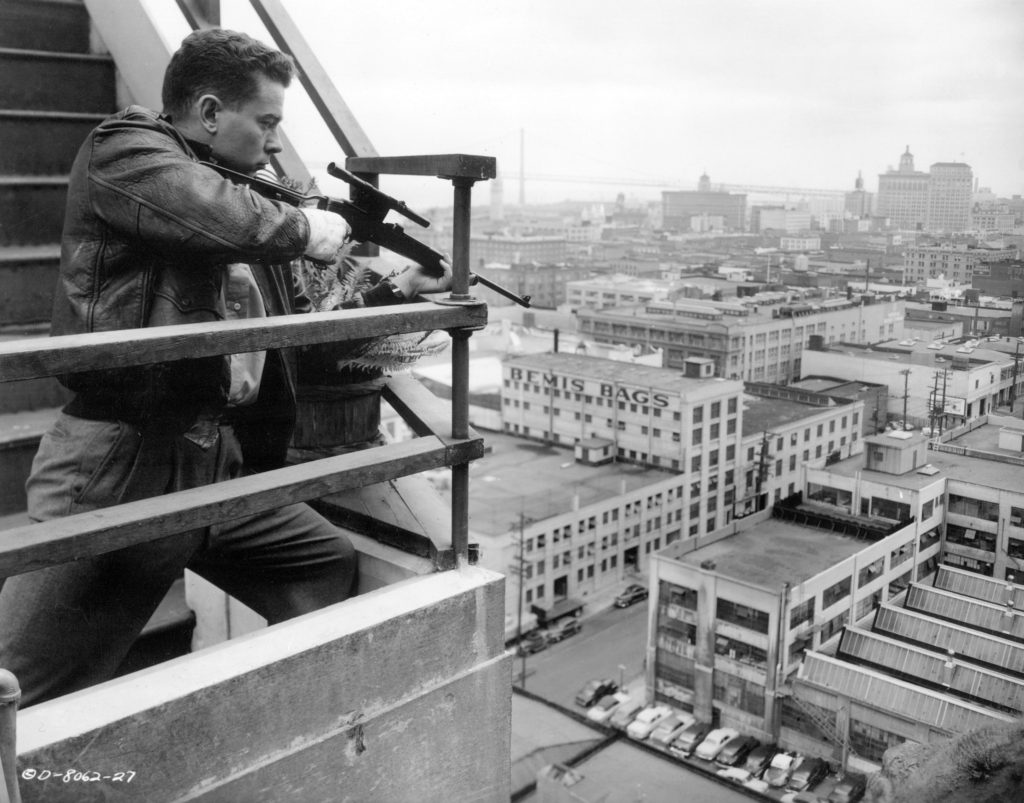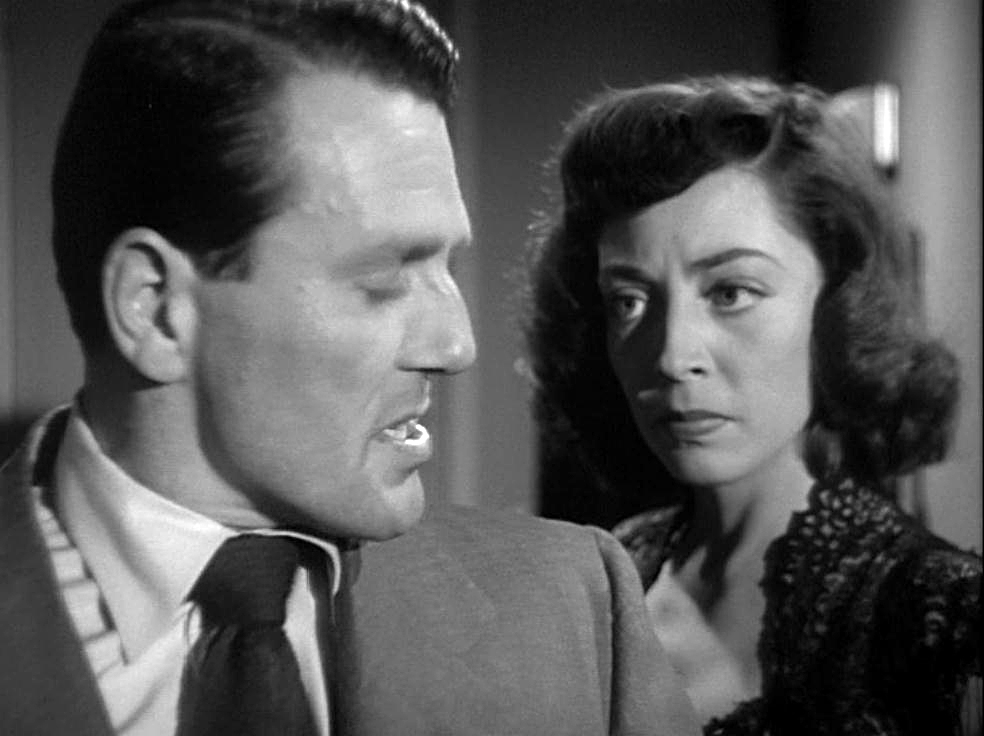
Tomorrow, the Noir City film fest opens at the Grand Lake Theater in Oakland and runs through February 2. This year’s program showcases the women of film noir – which femme is the most fatale?
Noir City is the annual festival of the Film Noir Foundation, spearheaded by its founder and president Eddie Muller. The Foundation preserves movies from the traditional noir period that would otherwise be lost. Noir City often plays newly restored films and hard-to-find movies. You know Eddie Muller from TCM’s Noir Alley, and he hosts Noir City in person, this year with his TCM colleague Alicia Malone.
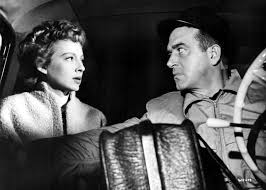
It’s a great program of 24 movies over ten days, jam packed with unforgettable female performances that span from the iconic (Jane Greer in Out of the Past) to the seductive (Claire Trevor in Murder, My Sweet) to the, well, savage (Ann Savage in Detour). Here are three of my personal favorites that you should not miss:
- The Narrow Margin, Noir City’s opening night film with Marie Windsor. In this taut 71 minutes of tension, growly cop Charles McGraw plays hide-and-seek with a team of hit men on a claustrophobic train. Windsor is unforgettable as the assassins’ target. McGraw might be film noir’s toughest Tough Guy, but Windsor gives him all the tough he can handle, and matches him snarl for snarl. “Relax, Percy, I wouldn’t want any of that nobility to rub off on me”.
- 99 River Street with Evelyn Keyes and Peggy Castle. Film noir tends to be about guys with bad luck, but nobody would trade their luck with Ernie Driscoll (John Payne). Ernie has lost his boxing career to a fluke cut and his abusive and slutty wife (a suitably insufferable Castle) to a mobster, and, now, he’s been framed for a murder. His only hope is to track down the Real Killer while driving around with the murdered corpse in his cab. Evelyn Keyes plays a Good Girl would-be actress who goes along for the ride; problem is, Ernie can’t tell when she’s acting. Nobody can keep ’em guessing like Evelyn Keyes.
- Cry Danger with Rhonda Fleming. Rocky (Dick Powell) has been released from prison; he knows he didn’t commit the crime, but he knows that his alibi is phony, too. Trying to figure out who framed and unframed him, he seeks out an old flame, his partner’s wife Nancy (Rhonda Fleming). The exquisitely beautiful Nancy is as wholesome as anyone can be with a hubbie in the hoosegow. We know that. if she turns out to be a femme fatale, it’s going to be a major punch in the gut for Rocky. Bonus: Rocky’s wing man is the perjuring alibi witness (an indelible Richard Erdman): “Occasionally I always drink too much.” It’s hard to top a frame, a drunk, a dame, hidden loot and an LA trailer park. This is not available to stream, so see it at Noir City.
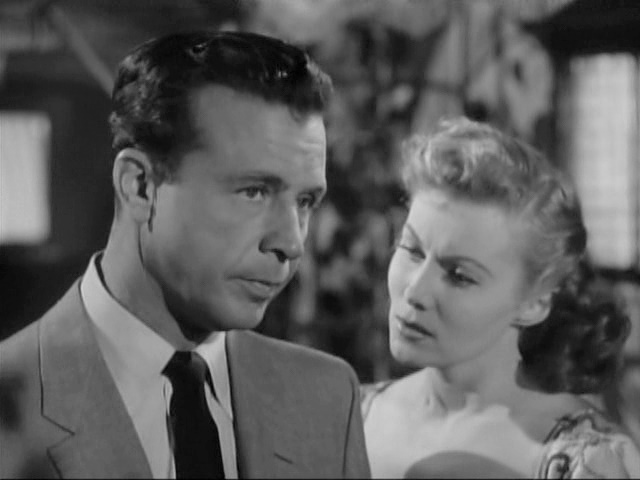
Read my festival preview, NOIR CITY returns – with the spotlight on femmes fatale, which lists the twelve films from this year’s Noir City program that are NOT available to stream. Noir City is your best chance to see them.
I’ve written about The Narrow Margin, 99 River Street, Raw Deal, Caged, Cry Danger, The Prowler and Murder, My Sweet in my Overlooked Noir feature. Check them out, along with my Overlooked Neo-noir.
Don’t miss Noir City. Review the program and buy tickets at Noir City. Of the nine film festivals that I cover each year, I always insist on attending Noir City in person. To steal from Eddie Muller, see you in the shadows.
